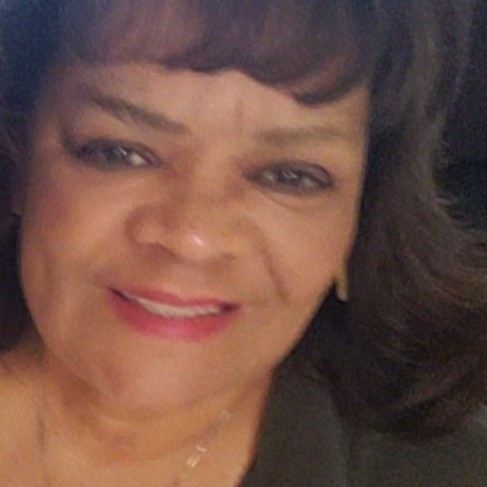
My view of diversity, equity and inclusion (DEI) programs has been shaped by exposure to many corporate offerings, as well as my personal history that includes lived experiences in the Civil Rights movement of the mid-to-late 1960s. In the time between then and now, I’ve become familiar with a plethora of government programs that provide funds for minorities for housing, education, healthcare and workforce training (to name a few).
It's safe to say that these efforts were all well-intended, but none represented the gold standard. For example, despite the Equal Pay Act of 1963, in 2020 women still only made 84 cents on the dollar compared to a man’s wages. And race is still the most common basis for discrimination in filings with the Equal Employment Opportunity Commission (EEOC), rendering questionable the effectiveness of the Civil Rights Act of 1964.
In our continuing effort to “level the playing field,” corporate social responsibility (CSR) is now almost synonymous with social justice in the larger context of making the world a more equitable place. After all, that’s the long reach DEI programs often establish for themselves.
But lest our efforts to achieve diversity end up on the program scrap heap with others, it matters that CEOs and DEI leaders are not blind to the reality and political climate that exists today — and still threatens to derail what has already been a long slog toward diversity and equity.
Beyond mere politics, the social contract — our agreement to live peaceably with one another despite our differences, founded on commonality — is being threatened.
At its most basic level, a society — whether that exists in the form of a village, a book club or a nation — depends on respect for the common denominator to survive. Along the way to societal decline, it’s easy to be distracted by pressure points that individually, while important, take on catastrophic dimensions when taken as a whole: vigilantism, anti-Semitism, book banning, the breakdown of law enforcement to serve and protect, voter suppression laws, and government imposing itself in matters of healthcare, education, and even the relationships we would have with our children and medical professionals.
Two million students in 86 school districts across the country have had their access to books restricted because of book bans this school year, and anti-Semitic incidents in the U.S. reached an all-time high in 2021.
In reality, DEI programs often exist in close proximity to the unhealthiest social trends of the day.
And what happens when the social climate and the corporate DEI philosophy conflict?
The triangular relationship involving Florida Gov. Ron DeSantis, the Walt Disney Co. and the state of Florida's HB 1557, also known as the “Don’t Say Gay” bill, is a good example of stakeholder-driven values that superseded a competing path a corporation may have taken. In fact, Disney expressed no obvious objection to HB 1557 until its employees and then locally-organized interest groups demanded the opposing stand. The lesson here is that Disney’s hero status was thrust upon it by an important bloc of citizens, and only then did the company respond.
The massive number of companies that flock to Texas, particularly the Austin area, represent the same double-speak when it comes to living the DEI mission statement. The number of new businesses and expansions in Austin reached almost 200 in 2021. In the first three months of this year alone, 47 companies either expanded their footprint or established new facilities in a state that has some of the most oppressive voter laws, restrictive reproduction laws, anti-gay and transgender laws, book banning policies, and the same issues Disney has had to confront in Florida.
A sampling of those businesses reflects that each has a clearly stated anti-discrimination policy, and you can find a DEI mention on most websites. Yet they come, contributing wealth to the state of Texas in a display of hollow patronage to the equal employment and DEI concepts they would promote.
That big business compromises morals to fatten the bottom line isn’t startling, and surely the economic development team in Austin offers juicy incentives to attract incoming businesses.
But at the end of the day, an inauthentic DEI program harms the human element, due to inauthentic promises made to people. And in terms of authenticity, even the most giant corporations can be exposed as frauds — think Amazon, Google and the company behind Facebook, all suffering from employee and shareholder concerns that were considered to be irrelevant based on their wealth and size, and arrogance.
With a forceful commitment to bring about true equity as best as they are able and support common values, corporations have a remarkable opportunity to simultaneously make a difference and make money. There is a beneficial link between profit and respectability which is capitalism at its best!
Image credit: Amy Elting via Unsplash

Gloria Johns' career has included her work as a columnist for Scripps-Howard, Gannett and Tribune News Service. She writes for the San Angelo Standard Times and the West Texas Angelus. Previously she was a special features reporter for San Angelo LIVE! Gloria also has nearly thirty years of award-winning grant writing experience for federal, state and county funds to support social, medical, educational and arts projects. She has enjoyed a successful career in telecommunications and nonprofit management. "Gloria is a Purdue University graduate. She has also attended Angelo State University for graduate courses and studied Texas Family Law at Sam Houston State University. She lives just on the edge of the Chihuahua desert in west Texas.














